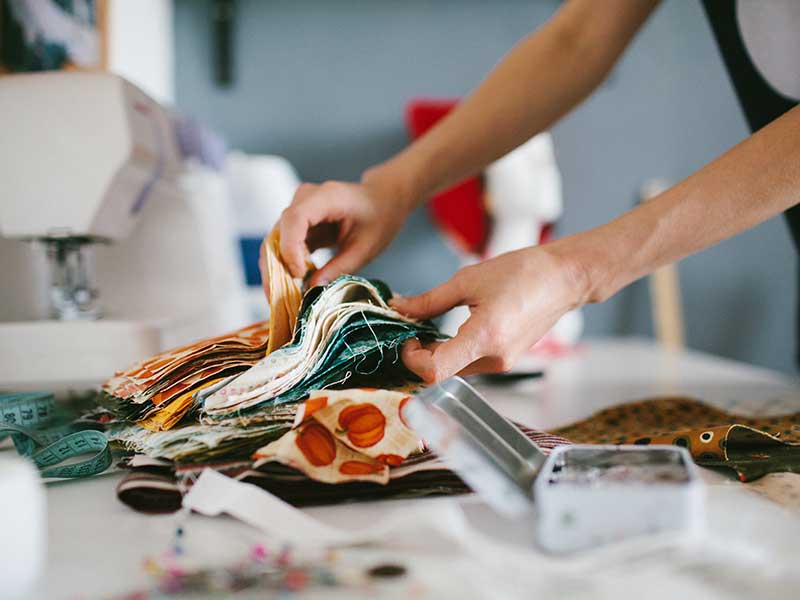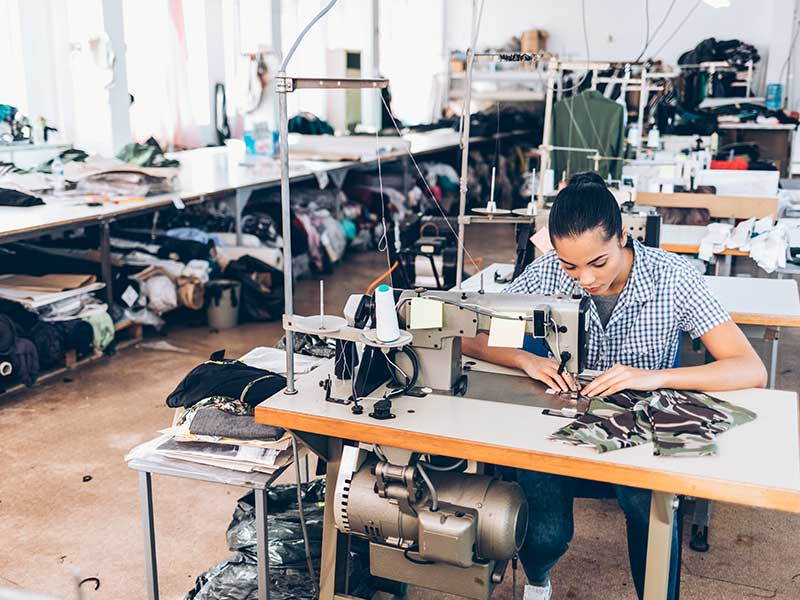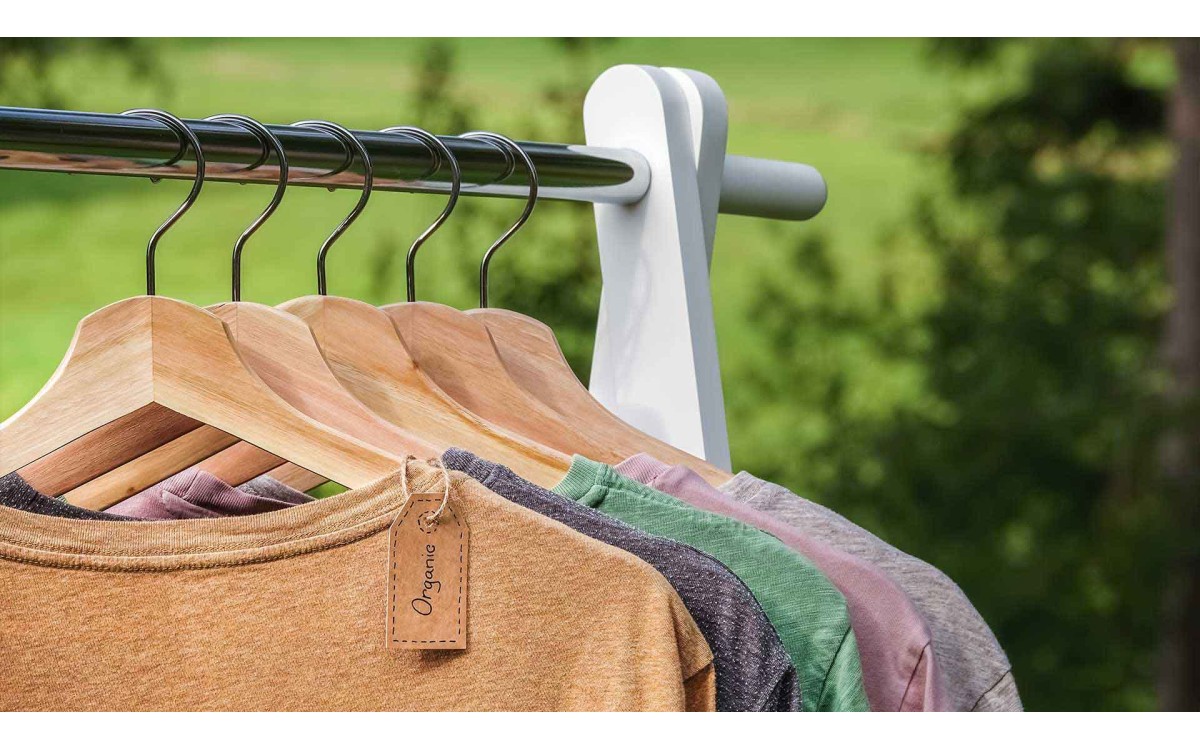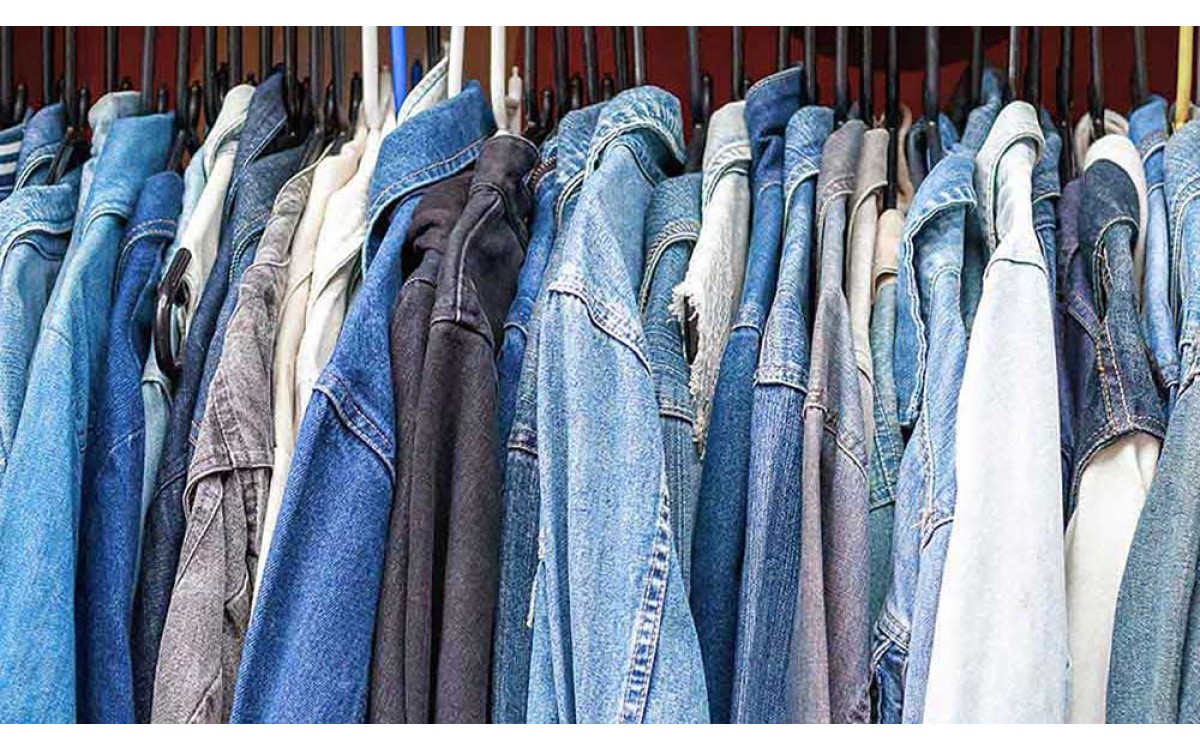Whether you're a fashionista or not, you'd know that sustainability in the fashion industry is making headlines across the world. It's hard not to notice the ripples of change as eco-conscious consumers increasingly question how their favourite t-shirt or pair of jeans are made. But what makes a fashion brand sustainable? And how do you define sustainability in the fashion industry?
There are several recognised global standards which help us, as consumers, have the confidence that what we're buying meets specific environmental and social benchmarks.
Here are some questions you can ask to work out whether a particular brand makes the cut or not:

1) Does the brand meet certain environmental standards?
This aspect of sustainability in the fashion industry covers everything from a company's waste management practices, water and energy usage to its agricultural methods, soil treatment and even the type of packaging it uses. Researchers say that synthetic fibres like polyester or nylon can take anywhere from decades to hundreds of years to biodegrade. Sustainable alternatives include options like organic cotton, hemp and linen. They're all grown without using or containing synthetic pesticides (which are harmful to the environment), and as natural materials they are completely biodegradable.
Fortunately more companies are turning to more eco-friendly fabric methods or technology, such as dyeing fabrics without water or digital printing as a fabric-colouring technology. One way to be 100% sure you’re shopping sustainably is to buy brands that meet the rigorous demands of a benchmark like GOTS (Global Organic Textile Standard) or Cradle 2 Cradle.
2) How about animal welfare?
We have people like Anita Roddick of The Body Shop fame to thank for putting animal welfare into the public consciousness. While most animal welfare protection guidelines specifically relate to the raising of farm animals, research shows that companies are beginning to acknowledge the importance of animal welfare protection. The shift in mindset applies to consumers as well. People are becoming more aware of the rights of our furry, scaled or feathered friends. If you ever wear (or use) wool, cashmere, silk, suede, down feather or leather, it's worth checking out what kind of conditions the animals live in, and how they are treated or handled. What you discover might surprise you. Good news is, there are a growing number of cruelty-free options around, including vegan or 'faux' leather or materials such as bamboo or hemp.
3) Is what you're buying ethically sourced?
Here, we want to know if the item we're buying was produced in a way that showed respect and care for the people who made it – usually farmers or factory workers. In other words, were they fairly paid, working in a safe and clean work place, of legal age and there by choice? There's no point purchasing something organic if people were treated unfairly along the way. To be sure, check for recognised certifications such as Fairtrade or Ethical Clothing Australia.

4) Where does the brand measure on the ethical Richter scale?
Big-name global brands such as Patagonia, Nike and H&M, along with scores of smaller fashion labels, have jumped on the sustainability-in-the-fashion industry bandwagon with pledges to minimise their environmental and social impact. Transparency and an innovative approach are important steps in the right direction. At the same time, watch out for 'green washing', when companies make unsubstantiated or misleading claims about the sustainable benefits of their offerings.
If you're genuinely concerned about sustainability in the fashion industry, it pays to check the clothing label of a potential purchase. What country an item was made in, which materials were used and whether it holds any certifications are all clues of how committed a brand is to making a positive environmental and social impact.
Often sustainable fashion can come with a higher price-tag due to the additional cost and care with farming, production and labour, but don’t let that discourage you. Read our guide on how to shop sustainably on a budget.
Sunglass Fix is an affordable sustainable fashion brand and a pioneer of the sunglasses replacement lens market. From reusing filtered water in their production machinery through to reusing bubblewrap in their packaging, the Sunglass Fix continues to lead the way in sustainable business innovation.
Looking for new sunglasses? Read our Sunglass Lover’s Guide to Sustainable Fashion.








